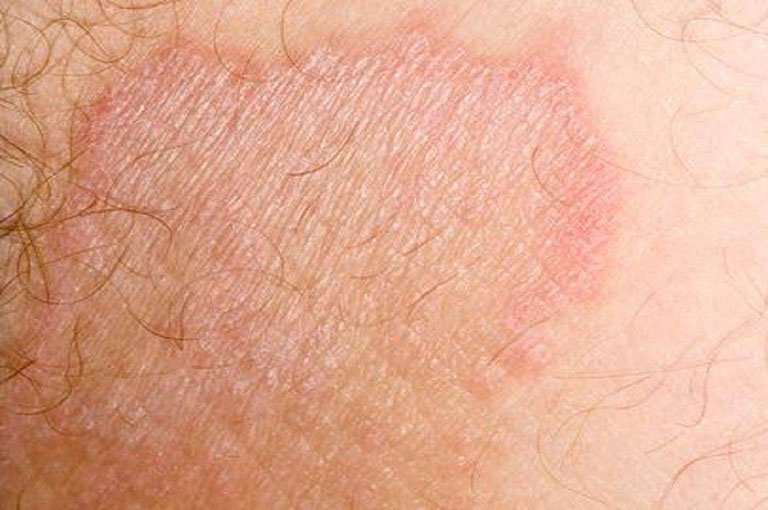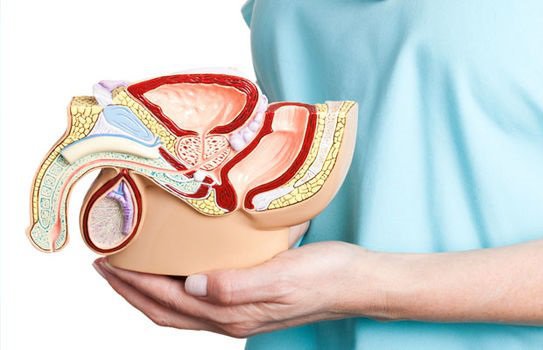Causes of scrotal eczema, eczema on the penis
Eczema on the penis belongs to the group of inflammatory skin diseases. Patients with scrotal eczema have symptoms such as the skin in the scrotum will be thicker than usual, peeling, causing itching and very uncomfortable. Scrotal eczema is not a sexually transmitted disease and is treatable. However, if the disease flares up, it will greatly affect the health and quality of life of the patient.
1. Overview of scrotal eczema
Eczema is a group of inflammatory skin conditions. Nearly 32 million Americans are affected by at least one type of eczema. Eczema makes the skin red, itchy, flaky, and cracked. They can appear almost anywhere on the body including the penis and the skin near the genitals.
Types of penile eczema include:
Atopic dermatitis : This type of disease appears suddenly as a rash or itchy skin. It can appear in infants and has no obvious cause. Irritant contact dermatitis: This condition is the result of exposure to an allergen or chemical. Stimulants can be condoms, underwear or sports equipment that irritate the penis. Seborrheic Dermatitis: This type of eczema occurs in areas of the skin that produce a lot of sebum. It usually appears on the scalp, but can also appear on the penis.
2. What are the symptoms of genital eczema?
Common symptoms of any type of eczema include:
Rash or red, bumpy skin; Itching or sensitivity around the rash; Dry skin; Red, brown, or gray patches of skin; Small blisters may burst and release fluid; Thicker or scaly skin;
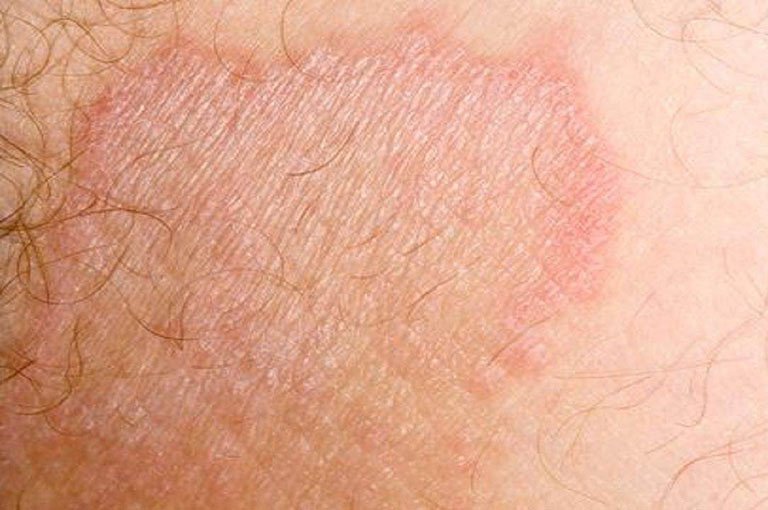
Người bệnh có thể thấy các mảng da đỏ và khô da vùng sinh dục
Some symptoms can also occur with a sexually transmitted infection (STI), such as genital warts, genital herpes, or human immunodeficiency virus. Other early STI symptoms include:
Unusual penile discharge; Bleed; Headache; Body pain; Fever chills; Swollen lymph nodes.
Eczema only affects the skin, it does not cause any other symptoms in fertility. If you're just experiencing skin rashes, dry or blistering skin, and no sex, it's probably a sign of an eczema flare-up. If you notice these symptoms appearing soon after your penis comes into contact with certain things, you may have irritant contact dermatitis. You should see your doctor if you experience these symptoms after having sex or not having sex for an obvious cause.
3. What causes penile eczema?
Eczema is caused by genetic and environmental factors. Many people get eczema because they have a mutation in the gene that produces filaggrin. This protein is responsible for creating a protective barrier on the top layer of the skin. If the body doesn't make enough filaggrin, the skin won't get enough moisture and bacteria can get in. Other factors can also trigger eczema to develop. Triggers such as latex cause the immune system to produce an excessive inflammatory response that leads to an eczema flare-up. Other possible triggers include:
Chemicals in soap or shampoo;
Chemicals in soap or shampoo;
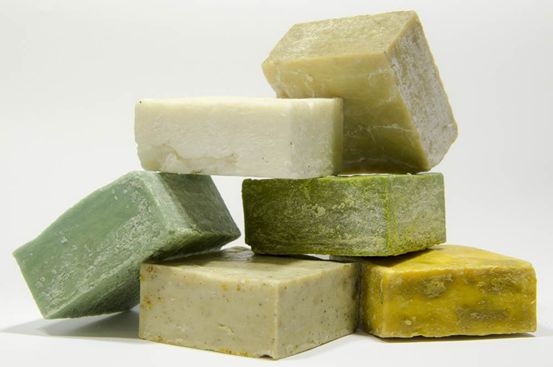
Hóa chất trong xà phòng có thể kích hoạt tình trạng chàm dương vật
Garment material, such as polyester or wool; Antibacterial agents in ointments or wet wipes; Cigarette smoke; Metal; Formaldehyde.
4. Is scrotal eczema contagious?
Scrotal eczema is not a contagious disease. It cannot be spread through sex or contact with an infected person's penis. Even so, eczema will cause discomfort during sex. Itchy scratching can lead to open sores, sores, and blisters and possibly infection.
Penile infections can be spread through unprotected sex. You should use condoms or avoid sex until the end of antibiotic treatment.
5. Treat scrotal eczema at home
If your symptoms are mild, you can relieve the pain with simple home remedies or over-the-counter (OTC) treatments. Includes:
Use the cold compress method: Dampen a cloth or towel with cold water. Fold or wrap the towel over the affected penis. Do as needed for about 20 minutes at a time. You can also use an ice pack or a frozen object in a towel for cold compresses.
Oatmeal bath: Add about 1 cup of oatmeal to a warm bath for a bath. It will help reduce itching. You can also take oatmeal and apply it to the affected area and cover it with a bandage.
Use an itch cream: Apply an OTC cream with at least 1% hydrocortisone to relieve itching. You can also apply the cream to a bandage and wrap the bandage around the itchy area. Do not use hydrocortisone cream for more than seven days unless directed by your doctor.
Take an OTC allergy medicine: Take a mild allergy medicine, such as diphenhydramine (Benadryl) or cetirizine (Zyrtec). These are drugs for atopic dermatitis. This medicine causes drowsiness, so if you need to drive or concentrate do not take it.
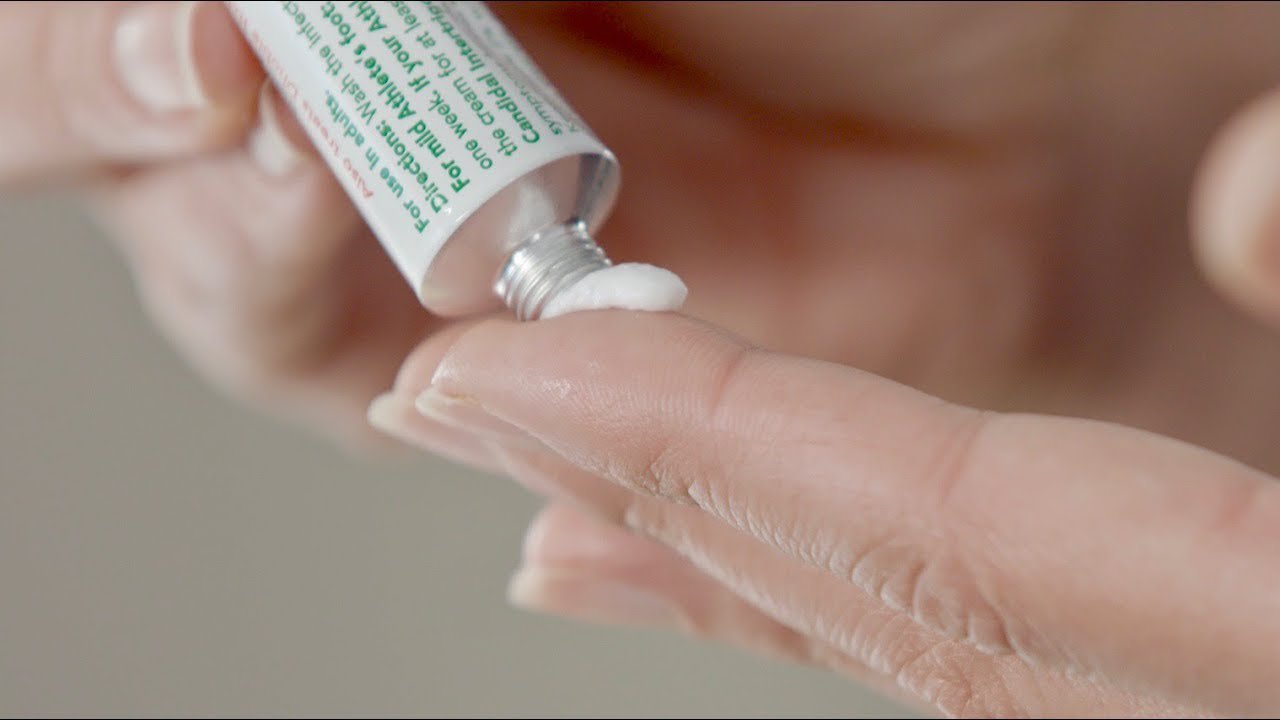
Người bệnh có thể bôi kem OTC với ít nhất 1% hydrocortison để giảm ngứa
6. When should you see a doctor?
See a doctor right away if you notice the symptoms of eczema combined with the following:
Discharge or cloudy discharge from the penis; Fever 101°F (38.3°C) or higher; Difficulty urinating; Pain when urinating; Lower abdominal pain; Pain or swelling in the testicles. You should also make an appointment with your doctor if your symptoms do not improve within a week. Your doctor can evaluate your symptoms and advise on next treatment steps.
7. Clinical treatment options
If your doctor diagnoses you with eczema, he or she may prescribe one or more of the following medications to help treat eczema flare-ups:
Calcineurin inhibitors: These drugs work to alter the immune response. body fluids. Common prescriptions include pimecrolimus (Elidel) and tacrolimus (Protopic).
Control inflammation: Take oral corticosteroids, such as prednisone (Deltasone) to help treat inflammation.
Antibiotics: If there is pain or infection, your doctor will probably prescribe about two weeks of treatment with flucloxacillin (Floxapen) or erythromycin (Ery-Tab).
Treatment with injections. If your skin doesn't respond to other treatments, your doctor may recommend dupilumab (Dapoxetine). This type of injection is usually only used for severe eczema. The drug is expensive and is still being tested for long-term use.
Phototherapy: In severe cases, your doctor may recommend exposing your skin to ultraviolet light to help relieve symptoms.
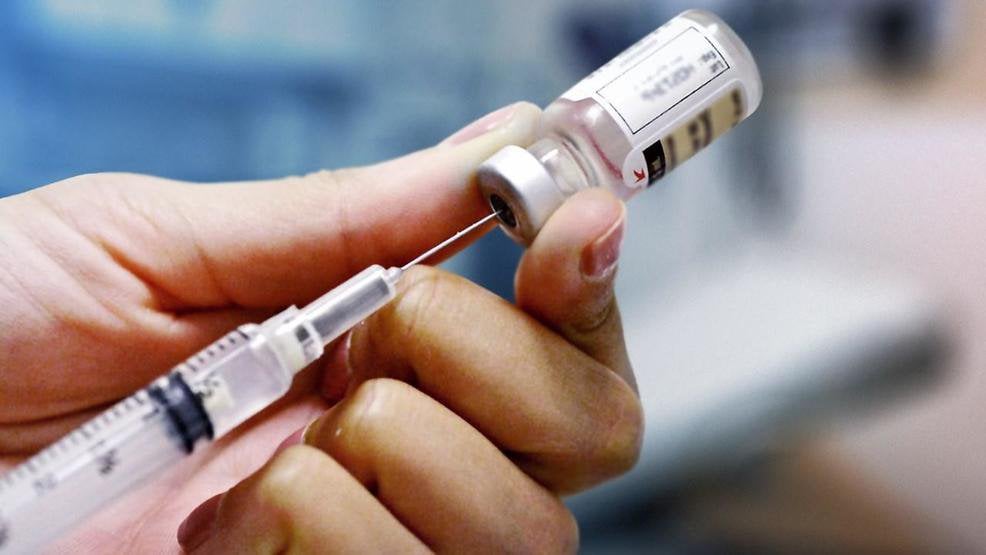
Tùy vào tình trạng bệnh mà bác sĩ sẽ quyết định phác đồ điều trị phù hợp
8. What are the complications of genital eczema?
Scratching itchy areas can lead to open sores or sores, which can increase the risk of infection. One of the possible infections is herpes simplex. Other complications of eczema can include: Permanently thickened, scaly skin from constant scratching; chronic asthma; fever.
9. Prevent eczema flare-ups
Eczema flare-ups usually last a few days before they subside. Disease flare-ups are predictable, and some flare-ups can be very uncomfortable. You can reduce your risk of a flare-up in the following ways:
Find out what triggers the disease. Talk to your doctor about testing for allergens. If you know that you are allergic to pollen, mold, chemicals, or other materials, you should avoid them as far as possible. Do not wear tight underwear. Instead, wear loose, comfortable underwear and long pants to prevent further skin irritation. Wear loose clothing for the genital area to avoid excessive sweating, which can also irritate the penis. Use natural lotion or ointment. Apply the medicine to the penis twice daily to keep the skin moist and prevent cracking. Do not use harsh soaps or hot water. Bathe often in warm water as hot water can dry out the skin. Avoid soaps with fragrances and chemicals as they can dry out the skin. Keep the indoor humidity level in balance. Use a humidifier to keep the air moist and prevent dry skin. Scrotal eczema is a form of inflammatory skin disease, although not too dangerous, but seriously affects the patient's quality of life. As soon as the symptoms of the disease appear, you should go to a reputable medical facility for early treatment. Currently, dermatitis is very common in all ages, genders, there are many types of skin diseases that can be transmitted, so you should see a doctor when strange symptoms appear on the skin.
At Vinmec International General Hospital, there is a package of examination and advice on treatment of atopic dermatitis to help customers assess the overall condition of the disease and advise on measures to help prevent recurrence.
When registering for a package of examination and consultation for treatment of atopic dermatitis, customers will receive: Dermatology specialist examination. Perform tests such as: quantitative IgE, fresh mycobacteria, specific IgE quantification with respiratory allergens - food (Panel 1 Viet), test Rida Allergy Screen (panel 1)...
Để đặt lịch khám tại viện, Quý khách vui lòng bấm số HOTLINE hoặc đặt lịch trực tiếp TẠI ĐÂY. Tải và đặt lịch khám tự động trên ứng dụng MyVinmec để quản lý, theo dõi lịch và đặt hẹn mọi lúc mọi nơi ngay trên ứng dụng.
Reference source: healthline.com
Bài viết này được viết cho người đọc tại Sài Gòn, Hà Nội, Hồ Chí Minh, Phú Quốc, Nha Trang, Hạ Long, Hải Phòng, Đà Nẵng.


